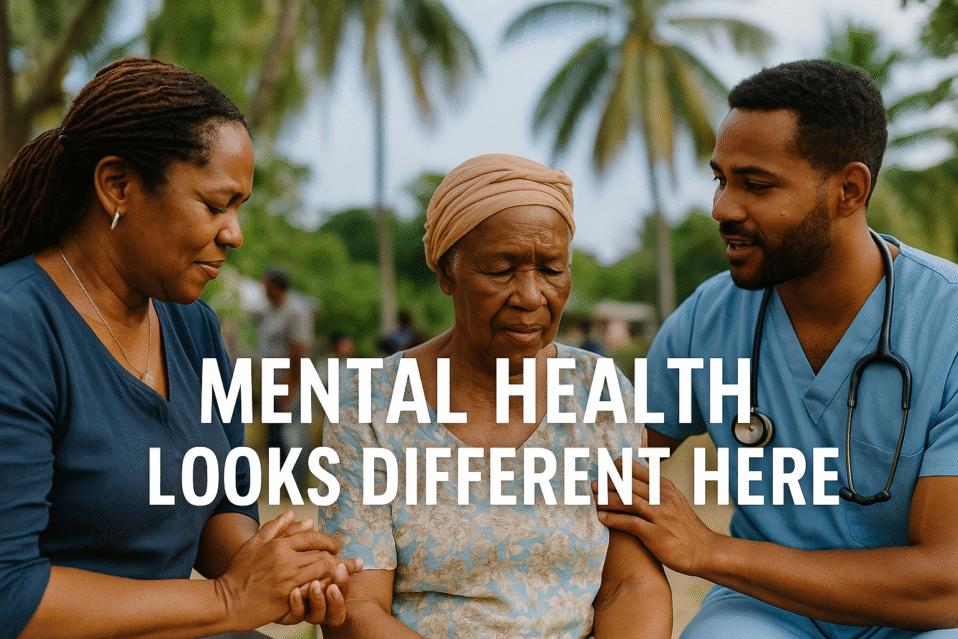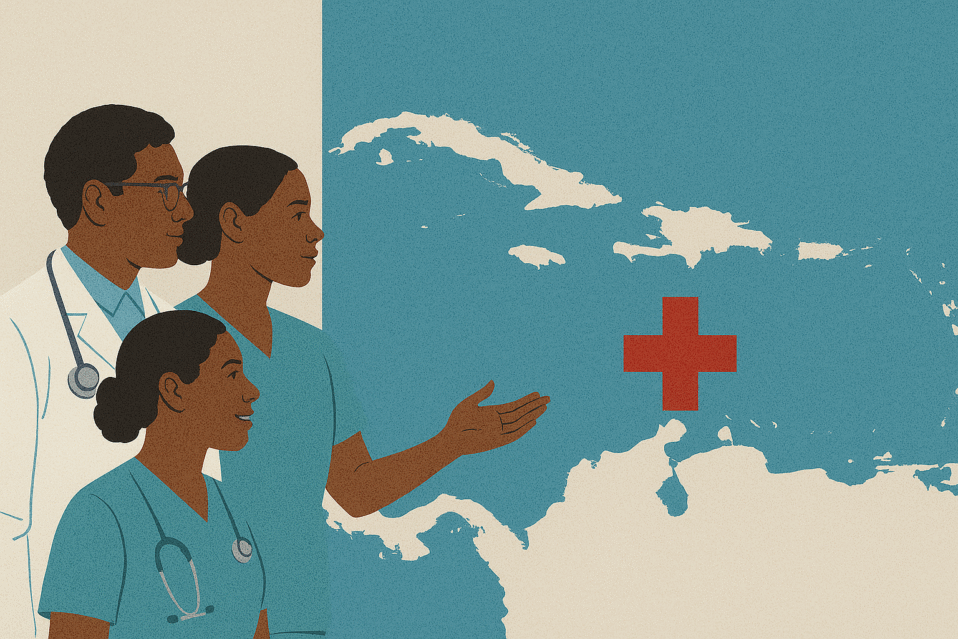May is Mental Health Awareness Month, and while the global message is clear—mental health matters—the way we understand and manage mental well-being must reflect culture, community, and context.
At MPOM, we believe that acknowledging cultural differences in how mental health is viewed, expressed, and treated is essential to building trust and improving outcomes across the Caribbean and diaspora communities in the U.S.
Why Culture Matters in Mental Health Care
Mental health is not one-size-fits-all.
In many Caribbean cultures, emotional struggles are often kept private or explained through spiritual or social lenses. Instead of seeking therapy or psychiatric services, individuals may turn to:
- Faith leaders or prayer as a source of healing
- Traditional remedies and herbal practices
- Elders or family members for advice and emotional release
- Silence or self-isolation, fearing stigma or shame
Similarly, Caribbean-American communities in the U.S. often underutilize formal mental health services due to lack of representation, historical mistrust of institutions, or unfamiliarity with therapy models.
Understanding the Language of Healing
Sometimes, what seems like resistance is simply a different expression of pain:
- “Mi head nuh good” or “Ah jus’ tired” might signal depression
- Sudden anger or withdrawal may mask trauma or anxiety
- Persistent stomach aches or body pain could indicate emotional distress
As healthcare professionals, wellness leaders, and advocates, we must learn to listen between the lines and support healing in ways that resonate with the lived experiences of the people we serve.
How MPOM Incorporates Culturally Relevant Practices
Throughout our missions and partnerships, we incorporate culturally appropriate approaches to care:
- Faith-Based Engagement
We host mental wellness talks in churches and collaborate with pastors to reduce stigma around seeking help. - Traditional Knowledge with Education
We validate the value of herbal healing while offering medical insight—bridging tradition with science. - Cultural Expression as Therapy
We encourage music, movement, storytelling, and creative outlets as pathways to emotional release and connection. - Community-Led Conversations
Our wellness events feature respected local figures and invite open dialogue that reflects shared values and identity.
This Month, Let’s Celebrate Cultural Wisdom
Mental Health Awareness Month isn’t just about expanding services—it’s about expanding understanding.
Let’s recognize that:
- Healing can come from a sermon or a song
- A neighbor or a grandmother can be a lifeline
- Mental health support must speak the language of the heart
Join the Movement
Whether you’re a healthcare worker in Atlanta or a community leader in Antigua, you can help shift the narrative by:
- Respecting cultural differences in how people process emotions
- Encouraging dialogue within families and faith spaces
- Making space for both modern therapy and traditional support
This month and beyond, let’s create a space where every form of healing is honored, and every person feels seen.
Follow us for culturally sensitive mental health tips all May long.
Share your story using #MPOMCares or #CulturalHealingMatters



